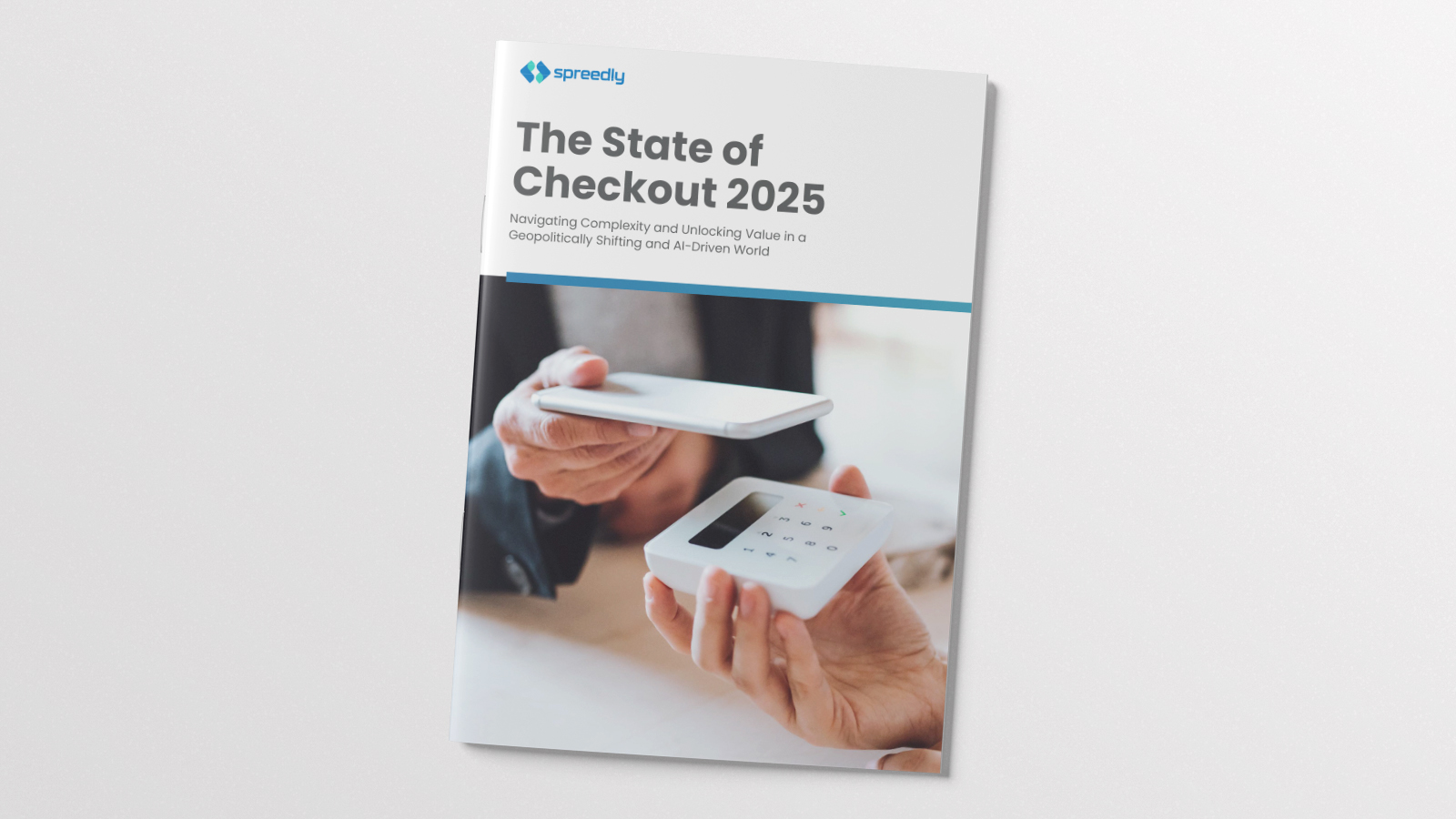
If you’ve ever bought an airline ticket, subscribed to a digital magazine, or booked a hair appointment online, you’ve likely used a merchant aggregating platform. These platforms are solutions that help merchants to deliver a great customer experience by offering key functionality to their end-customers and often centralizing demand from a broad array of customers.
These aggregators do this by providing their solutions to merchants who themselves then sell on to the end customers. Typically the aggregators are selling directly to the merchants, which is why they’re called aggregators in the first place.
There are two main types of merchant aggregators:
- A vertical aggregator focuses on a particular market and offers domain expertise that supports merchants in this category. For instance, Spreedly has merchant aggregation customers in the association management category like Fonteva. Fonteva provides communities and groups with specialized functionality that these groups use to sell to and manage end-users.
- A horizontal aggregator is largely cross-industry, though they may specialize in a few categories. They provide functionality that can be used by merchants to support ecommerce, billing, recurring subscriptions, and more. Chargebee is one of Spreedly’s customers. It offers a flexible recurring payment platform that allows merchants to sign-up and bill their end customers on a regular basis.
In both cases, payments are central to the overall customer experience. Aggregators want to help their merchant customers quickly move from evaluating a product or service to purchasing it. And they want to offer value added services that help smooth that experience.
The Challenges and Benefits of Payments for Merchant Aggregators
The challenge, however, is that aggregators often face heightened complexity in their systems. After all, they are attempting to provide value to a diverse array of merchant customers that have different end customer journeys. To deliver a great customer experience requires flexibility, particularly in the final mile of that purchase – the payments flow.
The flexible approach that aggregators like Fonteva and Chargebee chose is via Payments Orchestration. It helps keep their developers focused on merchant and end customer needs – lowering developer burden and business risk. It allows them to onboard new merchants to their platforms faster. And it even gives them value added services that let them upsell and better retain merchant customers.
By leveraging Payments Orchestration via Spreedly, merchant aggregators:
- Lower the cost and risk of a maintaining PCI compliant customer experience for their merchants
- Sell to more merchants and bring them onboard faster by supporting the payment services they need, and
- Increase revenue by selling value-added services that optimize the payment process for merchants
Let’s take a look at these benefits in more detail and use cases in which other aggregators are succeeding.
Minimize the Cost and Risk of Your Payments Infrastructure
Merchant aggregators continually aim to build a great customer experience for their merchant customers and end customers. Which requires a dedicated focus from your product and engineering teams. But if they are focused on managing the complexity of dealing with PCI compliance, 3DS, building and maintaining connections to a range of payment services, and other payments related activities, they can’t realistically be expected to have time to build additional differentiated solutions that serve customers.
Payments Orchestration addresses this need by helping platforms secure payment methods and stay compliant with PCI and other industry and government regulations. Payments Orchestration lets you access vaulting-related services and a range of hundreds of services in the payment ecosystem. That means that you can more quickly get to market and keep your developers focused on building value.
In summary, orchestration helps:
- Focus developers on building value instead of maintaining dozens of gateway integrations
- Outsource compliance burdens via our secure, PCI-compliant vault and payment infrastructure
- Future-proof your strategy with a portable, adaptable payment platform that you control
Bring More Merchants onto Your Platform
Your merchant customers often have established relationships with payment services. They might even have specific targets and requirements for volumes. This means that you can’t offer them a small range of gateways if you expect them to onboard with you. And if you do, they’ll likely take their business elsewhere.
Payments Orchestration allows merchants to “bring their own gateway”. Therefore Merchants can choose from hundreds of different payment services – Spreedly’s ecosystem is the broadest and deepest in the orchestration market. That means your developers aren’t sprinting to add new gateway services and your sales people can focus on landing more customers.
Plus, you want your customers up and transacting on your platform as soon as they’re signed with you. But if there are delays in onboarding due to the time lag for building their preferred payment gateway connection, that means the time to first transaction is delayed.
With Payments Orchestration, you land more customers by:
- Supporting the payment services your merchant customers demand, giving you a key differentiator
- Accelerating merchant onboarding with an ecosystem of ready-to-launch payment integrations
- Minimizing development effort by accessing our ecosystem of 120+ payment services
Increase Revenue from Your Merchant Network
To maximize revenue you want to not only land more merchants and increase their traffic. You also want to offer them added value that they can purchase from you. And value added services that drive more volume over your platform – and hence more revenue – are doubly impactful.
With Payments Orchestration, you can offer value added services like account updating and network tokens that refresh consumers’ stored payment methods. That helps to ensure that customers are transacting without declines and lowered fraud. Value-added services like failover technology, tokenization, and more also give you flexibility to add enhanced security measures and improve the cost and success rate of card transactions on your platform.
Your merchant customers are hungry for these critical services to improve their end-customer experience. When you offer them, you add a new revenue stream and improve the stickiness of your platform for your merchant network.
Ultimately meaning that Payments Orchestration also lets you:
- Ramp up transaction volumes via network tokens and account updater services that keep stored cards evergreen
- Increase revenue from merchants by re-selling value added services and optimizing authorization rates
- Differentiate from competitors with a higher value value platform that is more resilient and flexible
Merchant aggregators are an integral part of the ecommerce landscape. When combined with Payments Orchestration, they can increase advantageous benefits like improved customer experience to merchants. And, as a result, drive more revenue and sustained growth.




